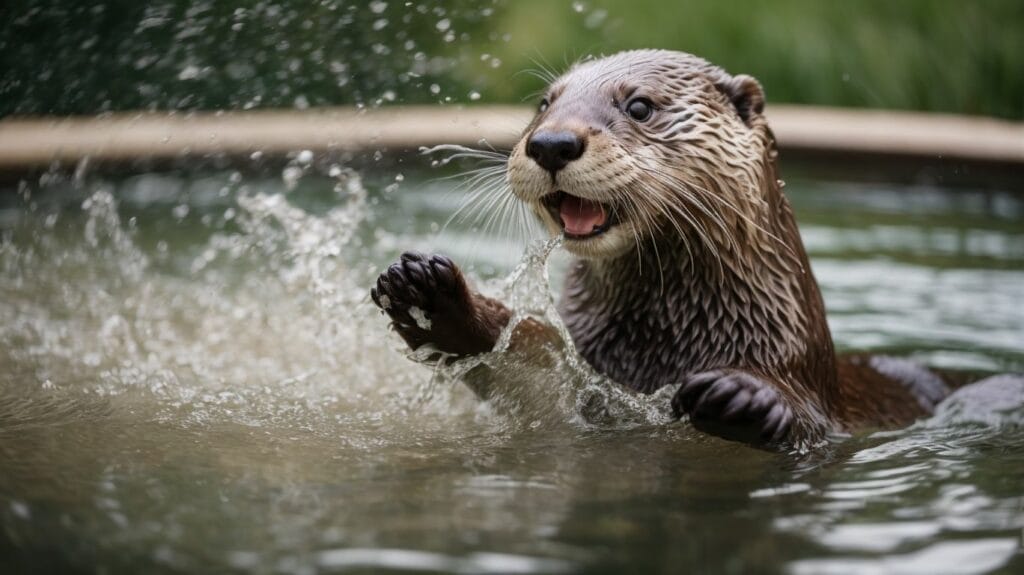Keeping otters as pets may seem like a fascinating idea for some people, but there are several important considerations to keep in mind. Before diving into the world of otter ownership, it is crucial to understand the legal implications, the feasibility of caring for otters, and the ethical concerns surrounding their captivity.
When it comes to the legality of owning otters, laws and regulations vary from country to country and even within different regions. Some jurisdictions may allow otter ownership under certain conditions, while others strictly prohibit it. Understanding the specific regulations and obtaining the necessary permits is essential before considering otter ownership.
Before deciding to keep otters as pets, one must consider the physical and behavioral characteristics of these remarkable creatures. Otters have specific needs in terms of diet, exercise, and habitat. Meeting these requirements and providing a suitable environment can be challenging, as otters are highly energetic and require ample space to swim and play.
Furthermore, there is an ethical debate surrounding the captivity of otters. Conservation efforts are focused on protecting and preserving wild otter populations, and keeping them as pets may disrupt these efforts. Captivity can have a significant impact on the well-being of otters, potentially causing stress, health issues, and behavioral problems.
For otter enthusiasts who admire these remarkable creatures, there are alternative options to consider. Supporting conservation efforts through donations or volunteering can contribute to the preservation of otter species in their natural habitats. Visiting responsible wildlife sanctuaries that prioritize the welfare and conservation of otters allows enthusiasts to observe these animals in a more ethical and sustainable setting.
Key takeaways:
Key takeaways:
- Owning otters as pets is generally not legal: Otters are wild animals and are protected by laws in most countries, making it illegal to keep them as pets.
- Otters have unique physical and behavioral characteristics: Otters are highly active, playful, and social animals that require complex physical and mental stimulation, making them unsuitable for domestication.
- Supporting otter conservation efforts is a better alternative: Instead of keeping otters as pets, individuals can contribute to the conservation and protection of wild otter populations by supporting organizations and wildlife sanctuaries dedicated to their care and preservation.
Legal Considerations for Owning Otters
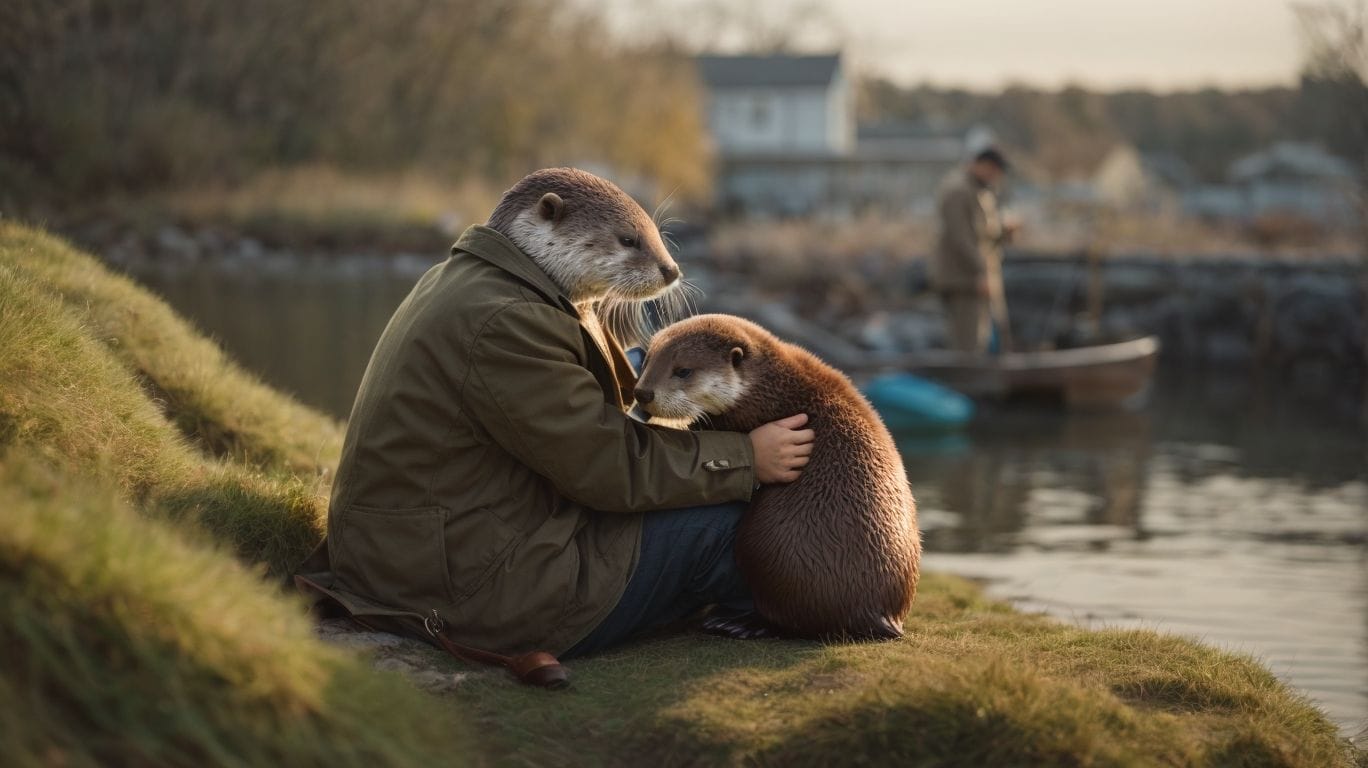
Photo Credits: Petnarnia.Com by Willie Lopez
When considering owning an otter as a pet, it is important to take into account the legal considerations. It is crucial to thoroughly research and understand the laws and regulations concerning otter ownership in your particular area. It should be noted that some countries have strict prohibitions on private otter ownership due to concerns related to their welfare and conservation. Even in places where it is legal, owning an otter entails specific care, permits, and facilities to ensure the well-being of these wild animals. An example that exemplifies these legal considerations is the true story of an individual who faced legal repercussions for attempting to keep an otter as a pet without the required permits.
Are Otters Legal to Own as Pets?
Are otters legal to own as pets? Owning otters as pets raises important legal considerations regarding their welfare and conservation. It is crucial to understand the laws and regulations surrounding otter ownership. In many places, otters are not legally allowed to own as pets due to concerns about their welfare and conservation. Some countries or states may allow ownership with proper permits and compliance with regulations. For example, in the United States, owning an otter as a pet usually requires a special exotic pet permit. It is vital to research and consult local authorities to ensure compliance with the specific laws in your area.
In 2021, a viral TikTok video showcasing a pet otter sparked a surge in interest in owning otters as pets. This led to discussions on social media platforms and a heightened awareness of the legal restrictions and ethical concerns surrounding otter ownership.
Permits and Regulations for Owning Otters
To legally own an otter as a pet, one must familiarize oneself with the permits and regulations that govern this process. These permits and regulations have been put in place to ensure the well-being of otters and to safeguard both the animals and their owners from harm. When considering owning an otter, it is important to obtain the necessary permits from wildlife authorities and to comply with specific housing and care requirements. Additionally, it is imperative to adhere to regulations concerning the transport and trade of otters. Staying up to date with any changes in these regulations is crucial in order to avoid penalties or other legal consequences. By abiding by these permits and regulations, individuals who are passionate about otters can enjoy their company responsibly and ethically.
Can Otters Be Kept as Pets?
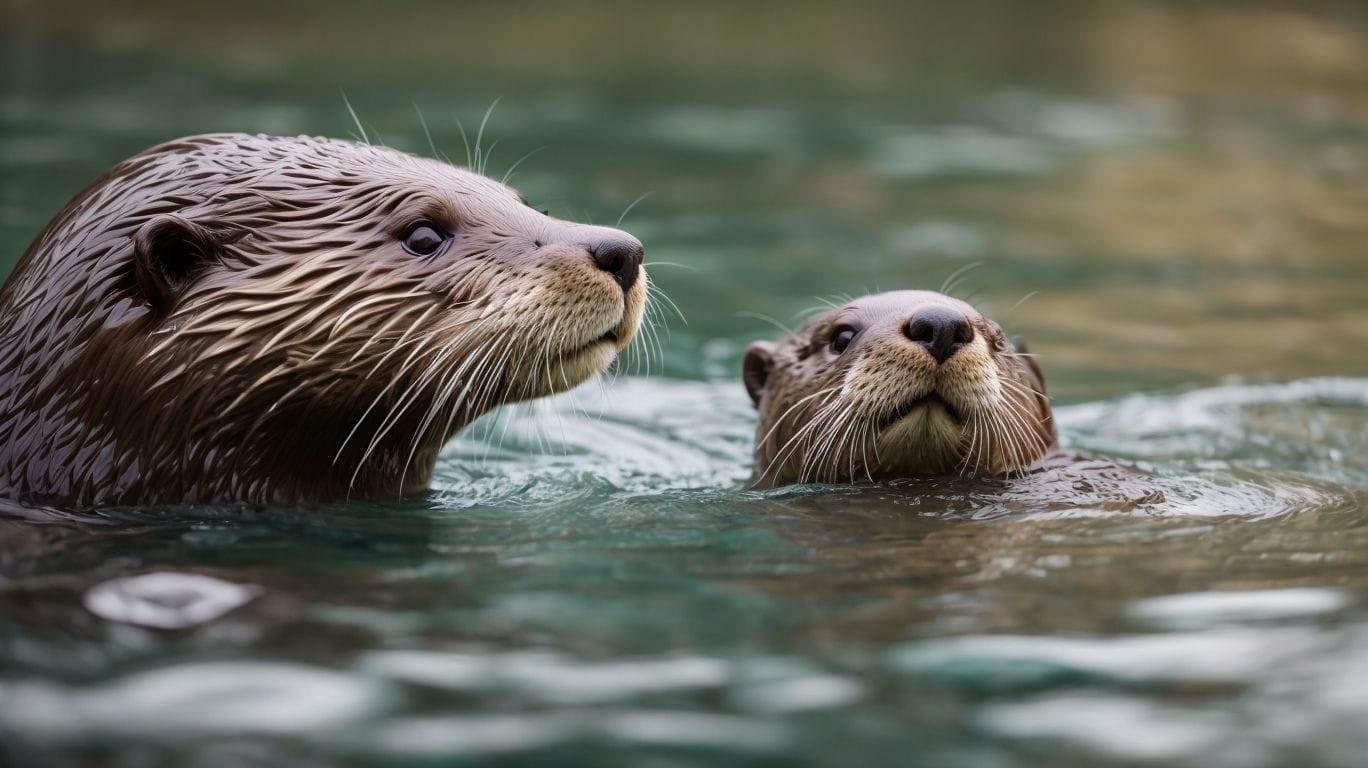
Photo Credits: Petnarnia.Com by Bryan Sanchez
Owning an otter as a pet – a wild and adorable creature, sounds intriguing. In this section, we’ll explore whether it’s plausible to keep otters as pets and dive into the physical and behavioral characteristics of these fascinating animals. We’ll also discuss the challenges that come with owning otters, uncovering the realities of living with these playful critters. So, let’s take a closer look at the pros and cons of having otters as our companions in the pet world!
Physical and Behavioral Characteristics of Otters
Otters possess unique physical and behavioral characteristics that distinguish them as pets. It is important to consider the following key traits:
- Physical attributes: Otters have streamlined bodies, webbed feet, and a thick, water-repellent fur that enables efficient swimming.
- Social behavior: Otters are highly sociable animals that form family groups known as rafts. They engage in playful behavior, communicate through chirps and whistles, and use scent marking as a means of communication.
- Diet and foraging habits: Otters are carnivorous and mainly feed on fish, crustaceans, and amphibians. They are skilled hunters, using their dexterous paws to catch and manipulate prey.
- Territorial nature: Otters have territorial instincts and mark their boundaries with scent to communicate with other otters.
- Natural habitat: Otters are semi-aquatic creatures and can be found in both freshwater and marine environments. Their natural habitat includes rivers, lakes, coastal areas, and wetlands.
Understanding these physical and behavioral characteristics is crucial when considering otters as potential pets.
Challenges of Owning Otters as Pets
The decision to own otters as pets comes with a variety of challenges that potential owners must carefully consider.
- Space requirements: One of the main challenges of owning otters as pets is the need for ample space. Otters require large and secure enclosures or access to natural bodies of water to swim, play, and explore.
- Specialized diet: Another challenge is meeting the otters’ specific dietary needs. Otters have a diverse range of seafood requirements, which can be costly and time-consuming to provide.
- Social interaction: Otters are highly social animals, and constant companionship is essential for their well-being. However, providing the necessary socialization and stimulation can be challenging for owners.
- Behavioral issues: Otters are active and mischievous creatures that may exhibit destructive behaviors if not properly trained and entertained. Addressing these behavioral issues can present a significant challenge.
- Legal restrictions: It is important to note that owning otters as pets may be illegal or heavily regulated in many jurisdictions. Permits and licenses may be required to ensure compliance with the law.
Taking into account these challenges is crucial to ensure the well-being of otters and the owner’s ability to provide a suitable environment.
The Ethical Debate of Keeping Otters as Pets
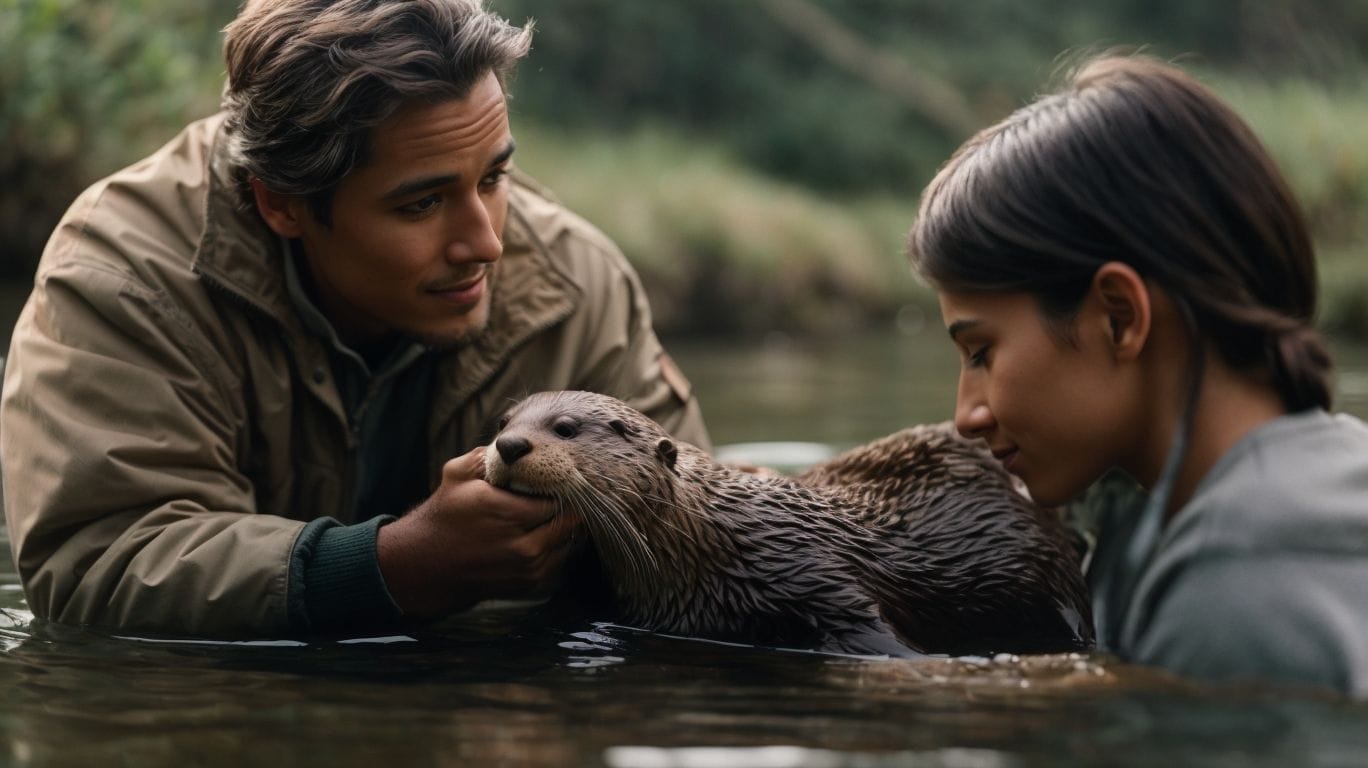
Photo Credits: Petnarnia.Com by Richard Lopez
Let’s dive into the lively conversation surrounding the ethical debate of keeping otters as pets. We’ll explore the crucial aspects of the conservation and protection of wild otter populations, as well as the impact that captivity has on the well-being of these fascinating creatures. Brace yourself for an enlightening exploration of the complexities surrounding the human desire to have otters as companions.
Conservation and Protection of Wild Otter Populations
Conservation and protection of wild otter populations are crucial to maintaining biodiversity and ecological balance. Here are some ways to contribute:
- Support organizations focused on otter conservation, such as the International Otter Survival Fund (IOSF) and the Sea Otter Foundation & Trust.
- Advocate for stricter regulations against illegal otter trade and habitat destruction.
- Participate in otter population monitoring programs to gather data on wild otter populations and their habitats.
- Educate others about the importance of otter conservation and the role otters play in their ecosystems.
- Contribute to habitat restoration efforts by volunteering or donating to conservation projects that aim to protect otter habitats.
In 1940, the Eurasian otter population in the UK dropped to critically low numbers due to pollution and habitat loss. Thanks to dedicated conservation efforts, the population has rebounded, showing that with proper protection, otter populations can recover.
The Impact of Captivity on Otters’ Well-Being
Keeping otters in captivity can have a significant impact on their well-being. The Impact of Captivity on Otters’ Well-Being is a matter of great concern. Otters are highly active and social animals that require large, natural habitats to thrive. When confined to small enclosures, they may experience stress, boredom, and physical health issues. Captive otters also miss out on important natural behaviors, such as hunting and socializing with other otters.
A true story that reflects the impact of captivity on otters’ well-being is the case of Charlie, a rescued otter who was kept as a pet for several years. Charlie displayed signs of depression and aggression due to the lack of stimulation and social interaction. After being rehabilitated and released into the wild, Charlie regained his natural vitality, forming bonds with other otters and exhibiting normal behaviors. This story highlights the importance of ensuring the well-being of otters by avoiding their captivity and supporting conservation efforts instead.
Alternative Options for Otter Enthusiasts
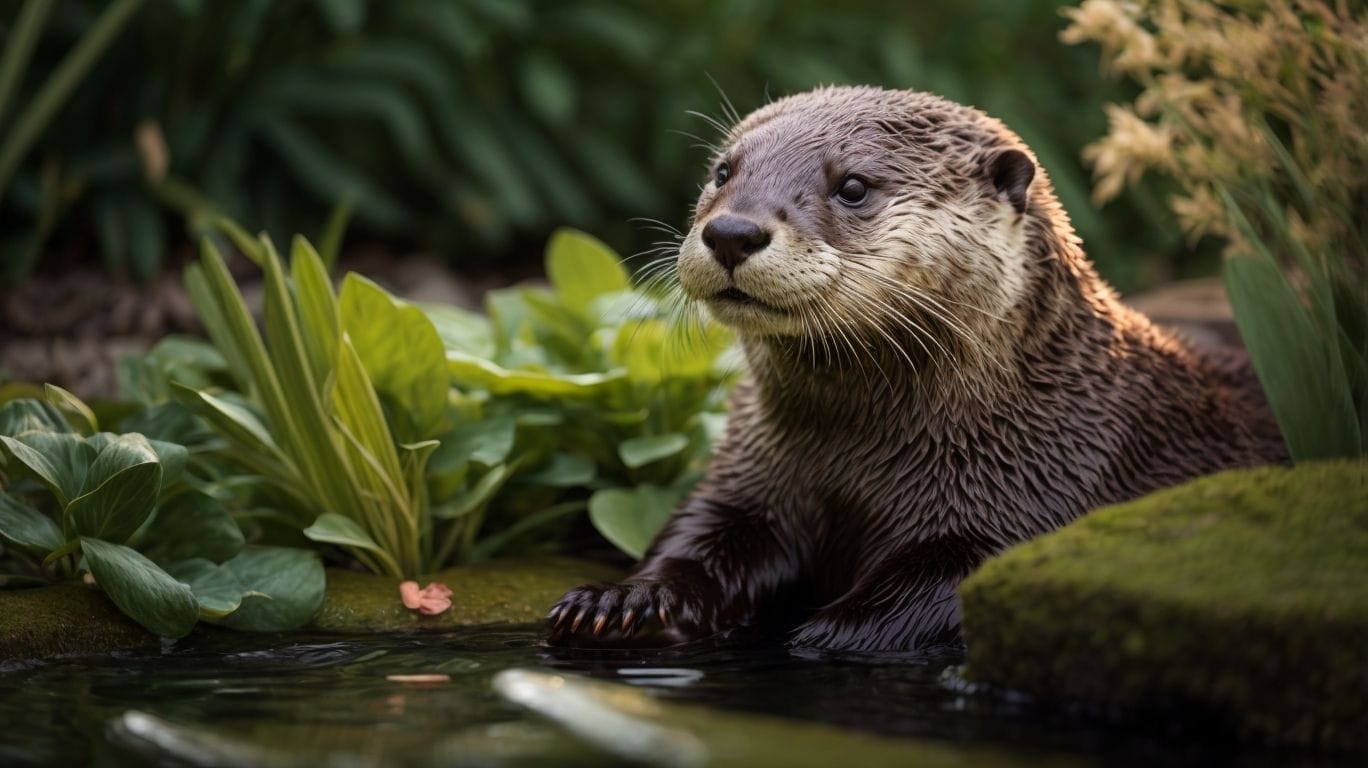
Photo Credits: Petnarnia.Com by Benjamin Sanchez
Are you looking to indulge your love for otters responsibly and ethically? Look no further! In this section, we’ll explore alternative options for otter enthusiasts that promote conservation efforts and support responsible wildlife sanctuaries. Get ready to uncover exciting ways to interact with these adorable creatures while ensuring their well-being and protection. So, if you’ve ever wondered how to be a part of otter conservation or experience them up close, we’ve got you covered!
Supporting Conservation Efforts
Supporting conservation efforts is essential for the welfare of otters. Instead of keeping them as pets, there are alternative ways to contribute to their conservation. One effective approach is to actively support organizations that dedicate themselves to preserving otter populations and safeguarding their habitats. Making donations to these organizations or offering one’s time as a volunteer can have a significant impact. Furthermore, visiting responsible wildlife sanctuaries that specialize in rescuing and rehabilitating otters not only allows individuals to enhance their knowledge about these incredible creatures but also enables them to play a role in ensuring their well-being. Through supporting conservation efforts, we can guarantee the long-term survival and protection of otters in their natural environment.
Visiting Responsible Wildlife Sanctuaries
Visiting Responsible Wildlife Sanctuaries is an excellent option for otter enthusiasts interested in learning more about these captivating creatures. These wildlife sanctuaries offer a secure and unspoiled environment for otters, enabling visitors to observe them in their natural habitat. By supporting and visiting these sanctuaries, you are actively contributing to the conservation and preservation of otters and their ecosystems. It’s a remarkable opportunity to increase your knowledge of otter behavior and promote their well-being without the need to own them as pets. Fun fact: Did you know that otters are incredibly skilled swimmers and often engage in playful activities, such as sliding on their bellies in the water?
Facts:
Some Facts About Can Otters Be Pets?
- ✅ Owning otters as pets is illegal or highly regulated in many countries (Source: Our Team)
- ✅ The Asian small-clawed otter and the North American river otter are the most popular otter species kept as pets (Source: Our Team)
- ✅ Otters require specialized care and a suitable environment that mimics their natural habitat (Source: Our Team)
- ✅ Otters are social animals and need companionship (Source: Our Team)
- ✅ Keeping otters as pets may be illegal in many places and is not recommended (Source: Our Team)
